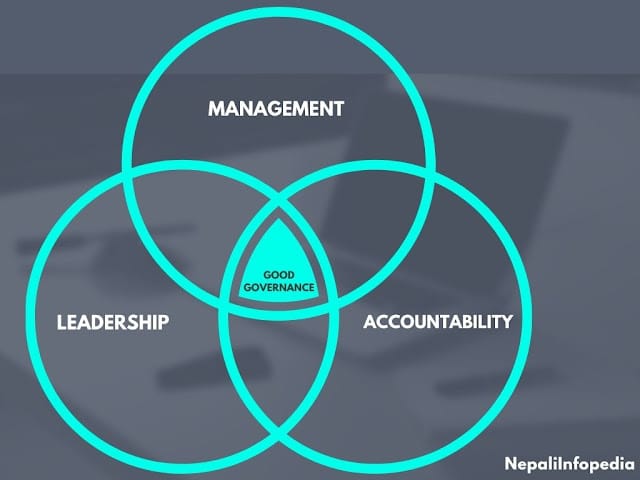Definition of Good Governance
Good governance refers to the high-quality activities of government. A good and positive rule is the structure of good governance. The rule that is progressive and has good management is an example of good governance.
Proper use of Administrative power makes the government effective. The basic characteristics of good government are responsibility towards citizens, a transparent judicial system, and a corruption-free society. Apart from that, people’s participation and the rule of law are also the basis of good governance. There are different elements of good governments like participation, transparency, rule of law, accountability responsiveness quality, equality, and inclusiveness, consensus, effectiveness, decentralization of power, etc.
The World Bank defines good governance as ” the manner in which the power is exercised in the management of the country’s economic and social resources of development”.

What should be done to maintain good governance?
The basic things that should be done to maintain good governance are as follows:
- Everybody should follow the law.
- Good rules should be guaranteed.
- Transparency in every kind of activity should be maintained.
- Citizen Charter should be displayed in front of every government as well as public offices
- The people should be given quick and effective service
Besides these other things that are needed to be considered for governance
- Focus on poor, minority, and disadvantaged group,
- Accountability towards the citizens
- Decisions on the basis of fact and data
- Good behavior and deficiency
- Proper planning and budgeting, etc
Challenges of Good Governance
There are many challenges in accessing good governance in Nepal. The challenges are as follows:
- Widespread corruption
- Political instability
- Weak civil society
- Lack of public pressure
- Unstable Policies
- Lack of feeling of nationality
- Giving more focus to power rather than skill and talent
- Increasing nepotism and favoritism
- Lack of commitment from political parties
Good governance is possible with the collective food from the government, private sector, and every individual. The administration should be changed into active and service-oriented administration. Judicial Institutions should be empowered. The traditional structural system should be reformed. Except for these, educational programs good governance should be launched. Overall, all the stakeholders should be monitored mobilized for good governance.
Effect of Good Governance
Good governance is important for countries at all stages of development. It is required for the smooth running of the country. Good governance brings economic growth, peace, and prosperity. Some effects of good governance are:
- Corruption rate decreases.
- The country becomes peaceful.
- Facilities and services can be received in an easy and uncomplicated manner.
- The relation between the ruler and its citizen becomes smooth.
- Everybody is entitled to equal Social Justice.
- Resources and means are distributed in an equal and lawful manner.